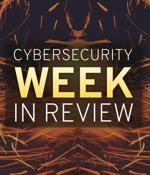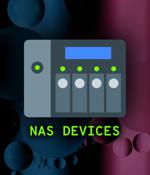Security News

NAS devices under attack: How to keep them safe?Network-attached storage devices are a helpful solution for storing, managing, and sharing files and backups and, as such, they are an attractive target for cyber criminals. 65 vendors affected by severe vulnerabilities in Realtek chipsA vulnerability within the Realtek RTL819xD module allows attackers to gain complete access to the device, installed operating systems and other network devices.

Palo Alto Networks researchers recently found some 240,000 QNAP and approximately 3,500 Synology NAS devices exposed to the public internet. Since the start of the year, a variety of NAS devices have been hit by ransomware gangs, botnet operators, as well as attackers who simply decided to wipe the data without warning and install a trojan.

Operators of the nearly-year-old eCh0raix ransomware strain that's been used to target QNAP and Synology network-attached storage devices in past, separate campaigns have, gotten more efficient. In a report published Tuesday, Palo Alto Network Unit 42 researchers said the new variant of eCh0raix exploits a critical bug, CVE-2021-28799 - an improper authorization vulnerability that gives attackers access to hard-coded credentials so as to plant a backdoor account - in the Hybrid Backup Sync software on QNAP's NAS devices.

A newly discovered eCh0raix ransomware variant has added support for encrypting both QNAP and Synology Network-Attached Storage devices. The ransomware hit QNAP NAS devices in multiple waves, with two large-scale ones were reported in June 2019 and in June 2020.

Taiwan-based NAS maker Synology has warned customers that the StealthWorker botnet is targeting their network-attached storage devices in ongoing brute-force attacks that lead to ransomware infections. According to Synology's PSIRT, Synology NAS devices compromised in these attacks are later used in further attempts to breach more Linux systems.

Infortrend launched U.2 SSD solution for EonStor CS scale-out NAS. The new all-flash CS 4014U satisfies high performance-demanding requirements for high throughput and low latency workloads, such as media & entertainment, HPC, Big Data, etc. CS provides complete data protection and high availability to avoid data loss and system downtime caused by disk damage or system failures.

Taiwan-based network-attached storage maker QNAP has addressed a critical security vulnerability enabling attackers to compromise vulnerable NAS devices' security. The improper access control vulnerability tracked as CVE-2021-28809 was found by Ta-Lun Yen of TXOne IoT/ICS Security Research Labs in HBS 3 Hybrid Backup Sync, QNAP's disaster recovery and data backup solution.

"REvil ransomware authors have expanded their arsenal to include Linux ransomware, which allows them to target ESXi and NAS devices," Caspi wrote. In a nod to research by AdvIntel in early May 2021, which reported REvil's intent to port its Windows-based ransomware to Linux, Caspi confirmed the Linux variant was spotted in May "Affecting *nix systems and ESXi.".

Western Digital has alerted customers to a critical bug on its My Book Live storage drives, warning them to disconnect the devices from the internet to protect the units from being remotely wiped. In an advisory, the storage firm said My Book Live and My Book Live Duo devices were being "Compromised through exploitation of a remote command execution vulnerability" CVE-2018-18472.

Western Digital My Book Live NAS owners worldwide found that their devices have been mysteriously factory reset and all of their files deleted. The WD My Book Live app allows owners to access their files and manage their devices remotely, even if the NAS is behind a firewall or router.